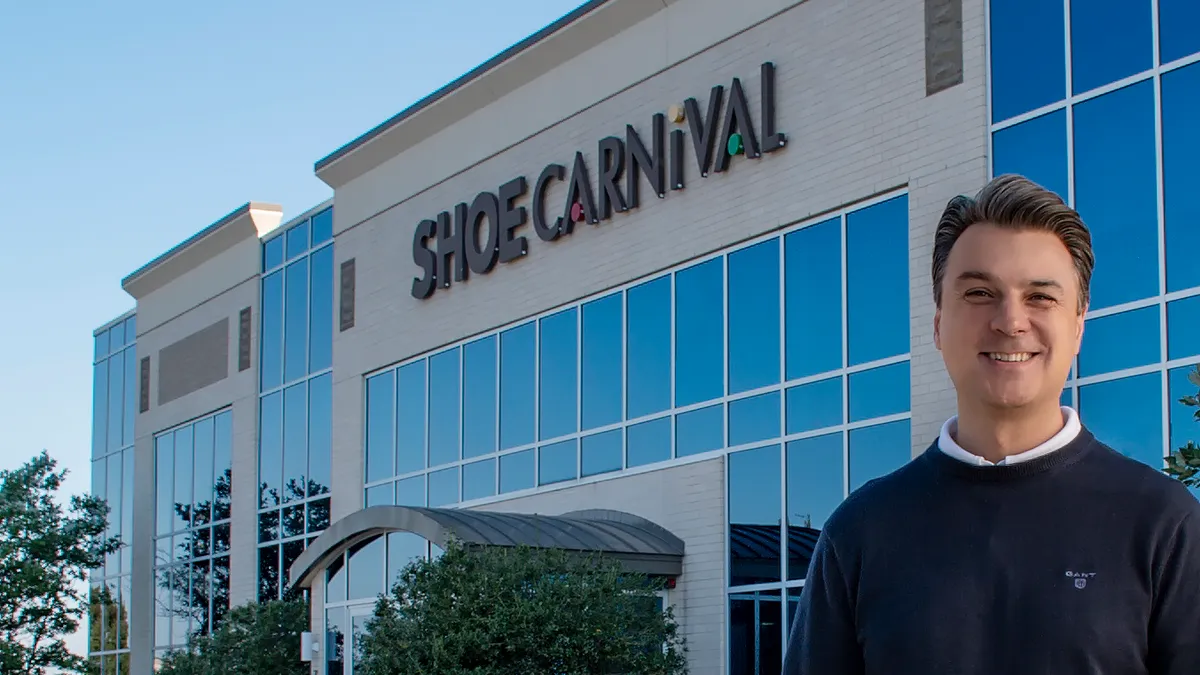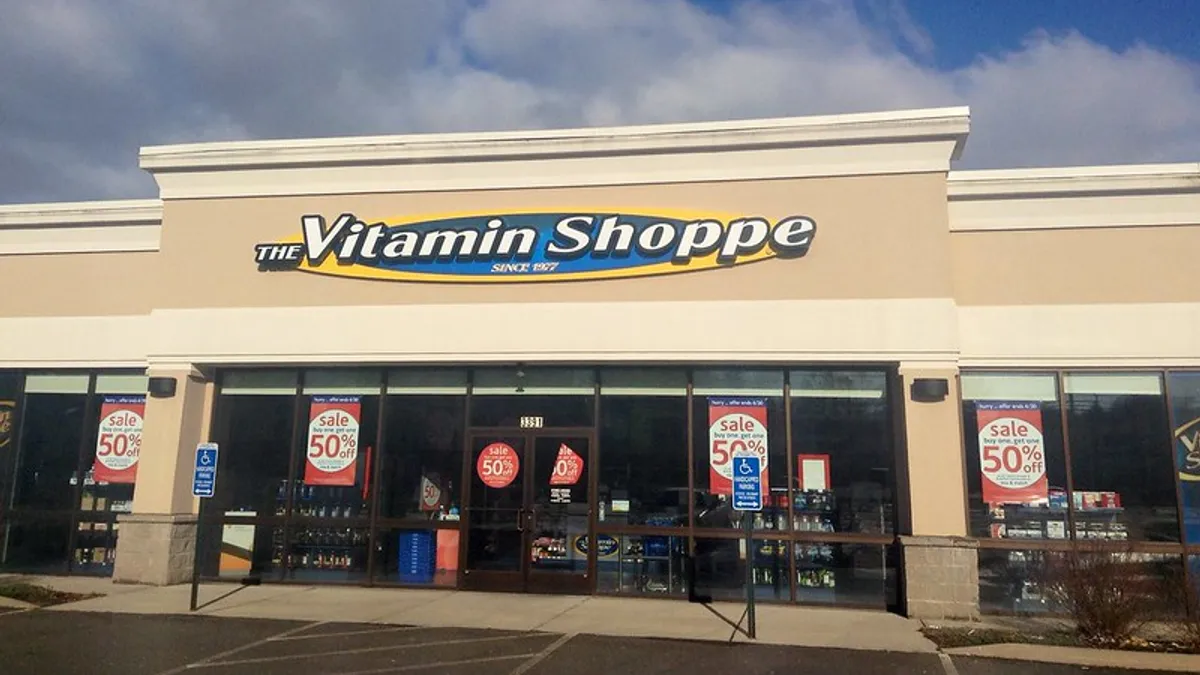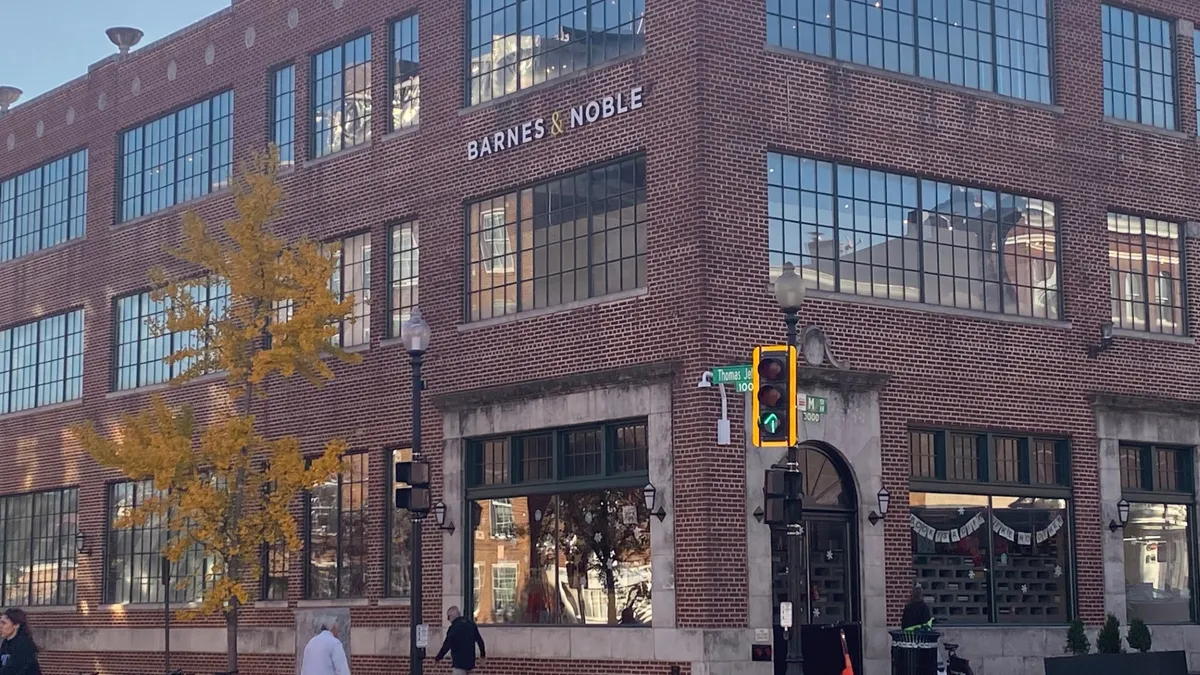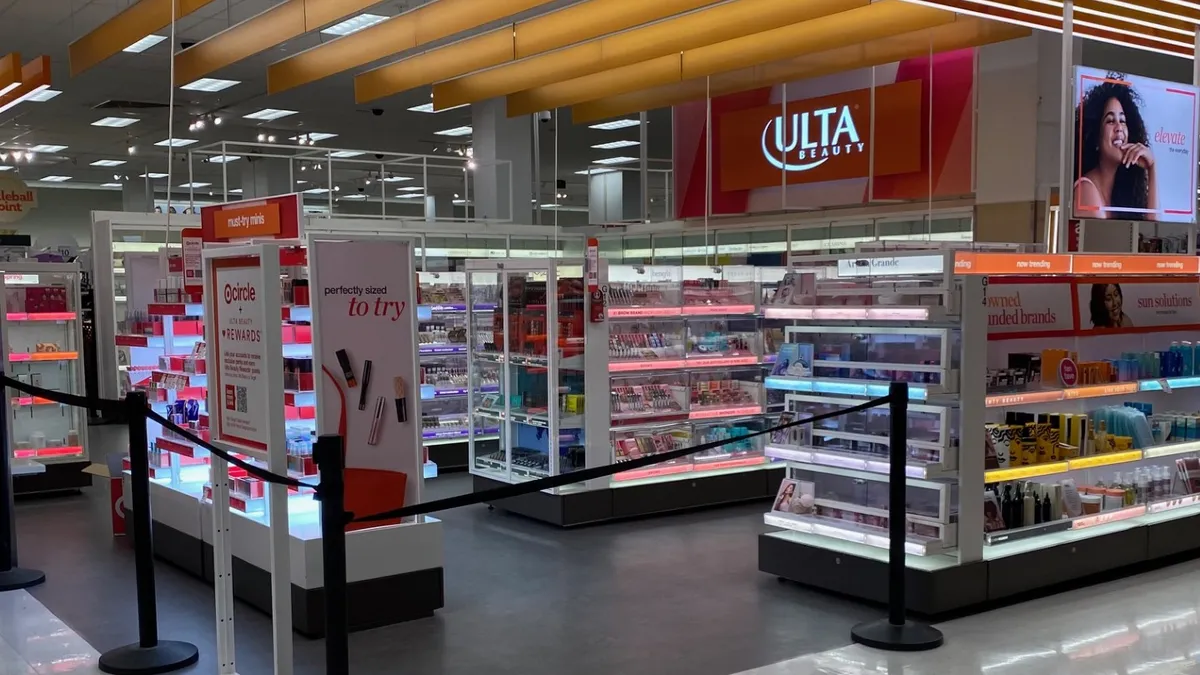Shoe Carnival is ripping up its playbook — and its carpet.
"We are transforming from a traditional value shop — carpeted, flat imagery, you know, a basic, average experience — to saying, 'We want Shoe Carnival to be the most differentiated customer experience when you're in our store,'" Chief Executive Officer Mark Worden, who took the reins in September, said by phone. "Because we believe the winners will be those that can motivate a customer to get off of their phone and come in and have a truly fun shopping experience. And Shoe Carnival's committed to the investment to make it happen."
After seeing new customers flock to its revamped stores, the footwear retailer recently expedited its remodeling project. In its most recent quarter, its "Shoe Perks" loyalty program expanded over 10% year over year, with total membership over 28.5 million, according to a company press release. In the first nine months of the year, ended Oct. 30, the company once again notched over a billion dollars in net sales, after falling to $722.9 million in the same period last year. The company has raised its outlook for the year, anticipating net sales to land at about $1.29 billion, or just under.
"I mean the response from our customers as we've been rolling this out has been so strong — conversion, comp, traffic, [units per transaction], margins, any dimension," Worden said. "The business results have been so strong that we were accelerating our plan and will now have over 90% of our fleet modernized by 2025."
About 100 stores will be refreshed by spring of 2022. In those stores, in place of the carpet are gleaming new floors. Digital interactive engagements, pop-ups featuring the best brands or new products, and comfortable seating areas break up the monotony of shoe displays. But the retailer is also adding a level of customer service that is uncommon in the value shoe space and even, increasingly, at some department stores. A few years ago, for example, in an effort to streamline store operations and cut costs, Macy's replaced its legacy shoe sales areas with self-service racks at its small and medium-sized stores.
At Shoe Carnival, by contrast, customers can take the self-service route but can also get help with foot measuring and other modes of assistance, Worden said.
"If you don't want help, we'll leave you alone," he said. "If you do want help, we're there. Unlike many folks in the channel, where they're just not staffed to be able to provide that experience, our employees are singularly focused on customer service. That might sound like it's not a big deal. But in the value retail channel, having customer service is still a great differentiator for us."
When it comes to stores, it's no longer just about remodels, either. The retailer just finished up a period of store closures and is now in expansion mode. The company runs 377 Shoe Carnival stores in 35 states and Puerto Rico, and in November said it "expects to move to net store openings as it enters 2022." For now, store openings will be concentrated in its existing geographies, but Worden said that, too, will expand. And, in December, the retailer grew via acquisition when it purchased family-held Shoe Station, which runs 21 stores in the Southeast, for $67 million.
The shoe purveyor's plans aren't necessarily good news for enclosed malls, however, because Shoe Carnival prefers strip-style and other open-air locations, where it runs 90% of its fleet. "We're in the best centers — open air, safe and with the best co-tenants, like the Ultas and Targets, Home Goods and T.J. Maxx types," he said. "And that's been a huge advantage for us, to not have the drag of malls during this period of time."
Like many retailers, Shoe Carnival has discovered that more consumers, at least for the moment, are willing to buy at full price or close to it. The retailer has scrapped many of its old discount tactics, including its BOGO promotions, which had been widely applied. In the most recent quarter, gross profit margin topped 40%, ballooning 840 basis points from last year's 32%.
"We realized during the pandemic that we were providing our best product at a lower price than the customer was really looking for, by nature of this buy-one, get-one-half-off promotion," Worden said. "They used to be applied across the whole store except for a few exclusions. So we instead switched to utilizing our [customer relationship management] program and finding the right offers for the right person, on a specific product, without providing deeply diluted profits across the whole business. We tested that during 2020, and rolled out for 2021, and we are ready to discontinue that antiquated approach."
Fresh worries about the pandemic threaten to again unsettle retailers, especially those like Shoe Carnival that rely so heavily on brick-and-mortar stores. But Worden said that the retailer has cultivated good relationships with vendors in order to avoid the worst of the industry's supply chain woes. And that its relationship with customers will hold regardless of the macro environment if Shoe Carnival maintains its momentum.
"Our big challenge now is how do we get our new customers to become repeat buyers and multiple purchasers in 2022," he said. "The majority of our growth is what we're doing to acquire new customers and taking market share."





















